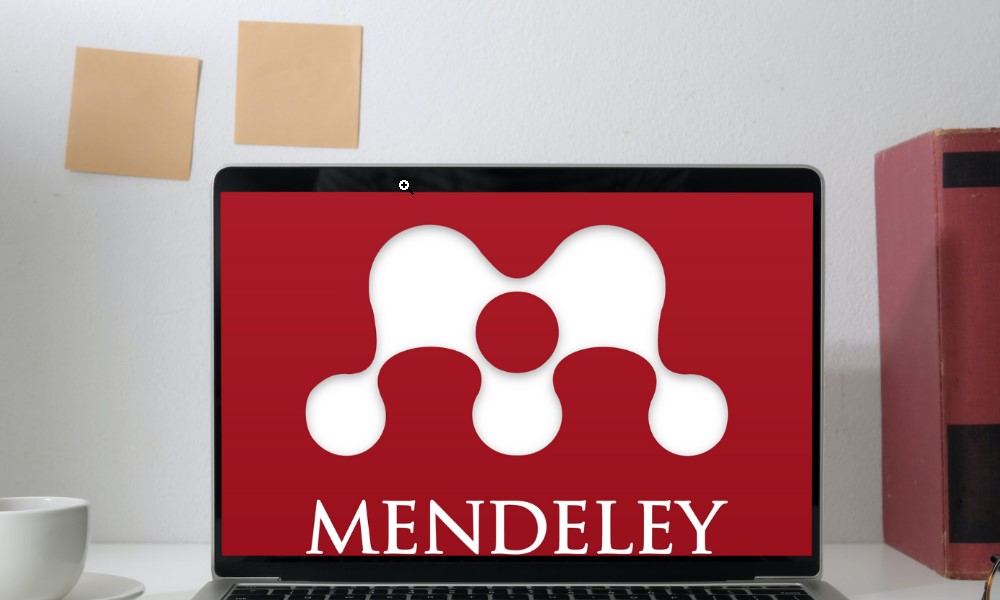How to Use the Mendeley Application for Organizing and Citing Research Papers
In today’s fast-paced academic and research environment, effective management of references, citations, and research papers is crucial. One tool that has gained significant popularity among students, academics, and professionals is Mendeley. This guide provides an in-depth look at how to use the Mendeley application, offering detailed information about its features, use cases, comparisons with similar tools, and insights into where to purchase any premium features.
What is Mendeley Application

Mendeley is a reference management and academic social networking application designed to help researchers, students, and professionals organize, share, and discover research papers. It simplifies the process of collecting, managing, and citing references while writing research papers or theses.
One of Mendeley’s key features is its ability to automatically generate citations in various styles (APA, MLA, Chicago, etc.), saving time and ensuring accuracy. It integrates with popular word processors, allowing users to insert citations and generate bibliographies easily.
Mendeley also provides a platform for collaboration, enabling users to create groups where they can share papers and annotations with colleagues or research teams. Additionally, the app syncs across devices, ensuring users can access their library anywhere, anytime.
As a research discovery tool, Mendeley allows users to find and follow researchers and papers in their field, helping them stay updated with the latest developments.
Best Features of Mendeley Application

The Mendeley application is one of the most popular reference management tools for researchers, students, and professionals. It offers a wide array of features that streamline the process of organizing research, managing references, and collaborating with peers. Here are some of the best features of Mendeley that make it stand out:
1. Reference Management
Mendeley’s core feature is its reference management capability. Users can easily import research papers and PDFs, and Mendeley will automatically extract key metadata such as the title, author, and publication year. It allows you to organize these references into folders, subfolders, and tags, making it easier to search and retrieve specific documents when needed. This feature saves time by reducing manual data entry and ensures accurate citation information.
2. Automatic Citation Generation
One of the most powerful features of Mendeley is its ability to generate citations automatically. It integrates seamlessly with popular word processors like Microsoft Word and LibreOffice, enabling users to insert citations directly into their documents as they write. Mendeley supports over 9,000 citation styles, including APA, MLA, and Chicago, making it adaptable to various academic and professional requirements. Additionally, users can generate a fully formatted bibliography with just a few clicks.
3. Cross-Platform Syncing
Mendeley offers excellent cross-platform syncing, allowing users to access their library of references and papers from any device. Whether you’re working on a desktop, laptop, or mobile device, your library is synced across all platforms in real-time. This ensures that you can always access your research wherever you are, whether you’re in the office, at home, or on the go. The synchronization feature makes it convenient for users who work across multiple devices.
4. Collaboration Tools
Mendeley fosters academic collaboration through its group features. Users can create private or public groups and invite collaborators to join. Group members can share research papers, references, and annotations, making it an ideal tool for research teams, study groups, and co-authors. This collaborative environment helps streamline group research projects and facilitates better communication and resource sharing.
5. Research Discovery
Beyond reference management, Mendeley also acts as a research discovery platform. Users can browse a vast library of research papers, follow researchers, and join public groups in their field of interest. This feature helps users stay updated with the latest research and discover new papers relevant to their work.
Key Benefits of Using Mendeley

Mendeley is not just a tool for storing research papers; it’s a full-featured reference management solution. Here are the primary benefits:
- Efficient Research Organization:
Mendeley allows users to import and organize research papers into a digital library. You can group articles by topics, projects, or tags, making it easier to retrieve specific information when needed. Its powerful search function lets you filter documents by keywords, authors, or dates, saving valuable time during research projects. - Seamless Citation Creation:
Writing research papers often involves the laborious task of citing sources. Mendeley simplifies this by offering automatic citation generation in multiple styles, including APA, MLA, and Chicago. By integrating directly with word processors like Microsoft Word and LibreOffice, Mendeley enables researchers to insert citations while writing, and automatically generate bibliographies at the end of the document. - Cross-Platform Access and Syncing:
With Mendeley, your entire reference library is synced across all devices—be it a laptop, tablet, or smartphone. This feature is incredibly useful for researchers who work across different locations, ensuring you always have access to your materials wherever you go. - Collaboration Made Easy:
Academic collaboration is a cornerstone of research. Mendeley supports group projects by allowing team members to share research papers and annotations in real-time. This fosters smoother communication and collaboration, particularly useful for research teams, lab groups, or student projects. - Discover New Research:
In addition to managing references, Mendeley doubles as a research discovery platform. You can follow researchers, browse public groups, and explore papers in your field of study, expanding your knowledge base and staying up-to-date with the latest findings.
Step-by-Step Guide to Using Mendeley
Here’s a detailed breakdown of how you can start using Mendeley for your research needs:
1. Installing Mendeley
- Go to the Mendeley website and download the desktop application. Mendeley is available on Windows, macOS, and Linux.
- Create a free account, which provides you with 2 GB of cloud storage.
- Optionally, install the Mendeley web importer as a browser extension to directly save research papers from databases like Google Scholar and PubMed.
2. Importing Research Papers
- You can easily drag and drop your PDFs into Mendeley, which will automatically extract metadata such as title, authors, and publication date. This process saves time compared to manually entering references.
- Organize your documents into folders based on subjects, projects, or classes.
3. Generating Citations
- Mendeley integrates with Microsoft Word and LibreOffice, allowing you to insert citations directly while writing.
- Select the desired citation style (APA, MLA, etc.), and Mendeley will automatically format your citations. At the end of your paper, it can generate a fully formatted bibliography with a click.
4. Collaborating with Teams
- Create private or public groups within Mendeley, and invite colleagues or classmates to share and collaborate on projects.
- Group members can annotate documents and share notes, improving overall collaboration and reducing miscommunication.
5. Syncing and Accessing Across Devices
- Your Mendeley library is automatically synced across all your devices. Whether you’re working on a desktop, a tablet, or even your smartphone, you can access your papers and references on the go.
Real-World Product Comparisons
When it comes to reference management, Mendeley is not the only player in the market. Here’s a detailed comparison of Mendeley with other popular tools to help you decide which one suits your needs best.
| Feature | Mendeley | Zotero | EndNote | RefWorks | Papers |
|---|---|---|---|---|---|
| Price | Free, premium available | Free, premium available | $249.95 | Subscription-based | $79/year |
| Cloud Storage | 2 GB (Free) | 300 MB (Free) | 2 GB | Unlimited (Cloud) | 2 GB |
| Citation Styles | 9000+ | 9000+ | 7000+ | 7000+ | 3000+ |
| Collaboration | Yes | Yes | Yes | Yes | Limited |
| Integration | Google Scholar, PubMed | Google Scholar, PubMed | PubMed | University Libraries | None |
| Cross-Platform Sync | Yes | Yes | Yes | Yes | Yes |
In-Depth Product Information
Here’s a more detailed look at the top reference management tools compared to Mendeley:
1. Zotero
Zotero is a popular alternative to Mendeley, known for its simplicity and open-source nature. It offers seamless browser integration, allowing users to save citations from websites with a single click. Zotero is an excellent choice for researchers looking for a free, easy-to-use reference manager with strong community support.
- Price: Free, with additional storage options available.
- Advantages: Open-source, browser extensions, great for individual researchers.
- Disadvantages: Limited cloud storage in the free version, fewer advanced features.
2. EndNote
EndNote is a premium reference manager designed for advanced academic and professional research. It offers thousands of citation styles and extensive collaboration tools. However, its high price may be a drawback for individual users.
- Price: $249.95 for a one-time purchase.
- Advantages: Extensive citation styles, robust collaboration features, advanced research tools.
- Disadvantages: Expensive, steep learning curve.
3. RefWorks
RefWorks is designed for institutional use, offering cloud-based reference management. Its tight integration with university libraries makes it a preferred choice for academic institutions. However, the subscription-based pricing might be expensive for personal use.
- Price: Subscription-based (pricing varies).
- Advantages: Cloud-based, university integration.
- Disadvantages: Pricey for individuals, complex UI.
4. Papers
Papers is a lightweight reference manager focused on ease of use and portability. With strong PDF management and a mobile app, it’s ideal for researchers who prefer a streamlined, intuitive interface.
- Price: $79/year.
- Advantages: Mobile-friendly, clean interface, simple PDF management.
- Disadvantages: Limited citation style support, lacks advanced features.
5. CiteULike
CiteULike is a free reference manager with basic bookmarking capabilities. While it lacks many of the advanced features found in other tools, it is easy to use and requires no installation.
- Price: Free.
- Advantages: Simple to use, no installation required.
- Disadvantages: Lacks advanced features, no collaboration tools.
Benefits of Using Mendeley Over Other Tools
Mendeley offers several advantages over competing tools, particularly when it comes to usability and collaboration.
- Broader Citation Style Support: Mendeley offers over 9000 citation styles, making it compatible with virtually any journal or academic institution.
- Cross-Platform Syncing: Unlike Zotero, which limits cloud storage, Mendeley provides 2 GB of free storage, with options to upgrade. This makes it easier to sync across devices.
- Integration with Popular Research Tools: Mendeley integrates seamlessly with Google Scholar, PubMed, and many other research databases, simplifying the process of importing references.
Transactional Information: How to Buy and Where to Download
Mendeley can be downloaded for free from the official website. The basic version includes 2 GB of cloud storage, which is sufficient for most researchers. However, if you require more storage, you can upgrade to Mendeley’s premium plans, starting at $4.99 per month.
Where to Buy Premium Features:
Premium plans provide additional storage and features. You can purchase them directly through the Mendeley app or via the Mendeley pricing page.
Use Cases for Mendeley
- Academic Researchers:
Mendeley is indispensable for university students working on theses, dissertations, or research projects. The tool allows for easy citation insertion and bibliography creation, which saves time and effort during the writing process. - Research Teams:
For collaborative research, Mendeley’s group feature allows team members to share papers and notes in real-time. This is particularly useful for lab groups or interdisciplinary research teams who need to share resources and stay organized. - Literature Review Management:
Conducting a literature review requires sifting through hundreds of papers. Mendeley helps by organizing references into searchable folders, tagging papers, and adding annotations, making it easier to track your progress. - Freelancers and Writers:
Freelance writers who rely on research-based content can use Mendeley to manage their sources and generate citations effortlessly.
FAQs
- How do I install Mendeley in Word?
- You can install the Mendeley plugin for Microsoft Word by going to the “Tools” tab in the Mendeley application and selecting “Install MS Word Plugin.”
- Can Mendeley create citations in different styles?
- Yes, Mendeley supports over 9000 citation styles, including APA, MLA, and Chicago.
- Is Mendeley free to use?
- Yes, Mendeley offers a free version with 2 GB of cloud storage. Premium plans are available for users who need additional storage.
- Does Mendeley work offline?
- Yes, you can access your library offline. Any changes you make will sync once you’re back online.
- Can I collaborate with others on Mendeley?
- Yes, Mendeley allows you to create private or public groups where you can share references, papers, and annotations.